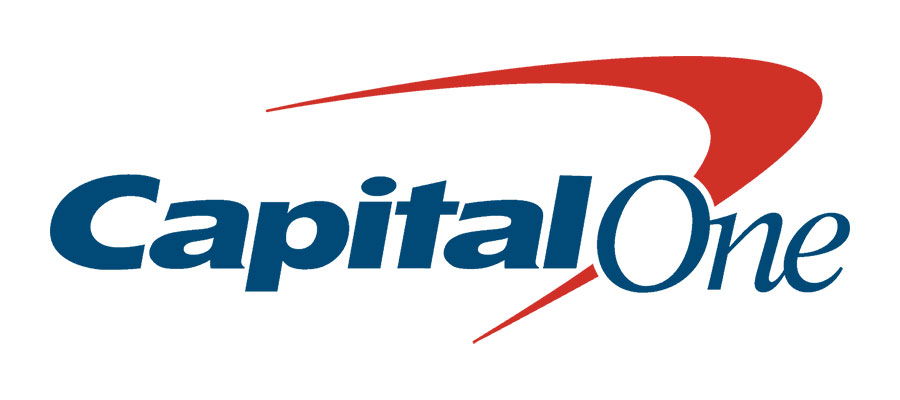In their simplest form, auto loans are financing tools designed to help individuals afford a car purchase. They bridge the gap between the car’s price and what the buyer can afford to pay upfront, allowing the buyer to drive away in the vehicle and pay off the cost over a series of monthly payments.
Auto loans are typically structured as installment loans, where the borrower repays the initial loan amount, known as the principal, plus interest accrued over the term of the loan. Various elements impact the structure of auto loans, including the loan term (or how long you have to repay the loan), the interest rate, the down payment, and the buyer’s credit history.

There are three primary types of auto loans: dealer-financed loans, direct loans, and private-party auto loans. Each has its unique characteristics and serves specific buying scenarios.
Key Takeaways
- A private-party auto loan is used to finance the purchase of a used car directly from an individual seller, rather than through a dealership.
- Benefits of private-party auto loans include access to a broader range of vehicles and potential cost savings, but they can also involve more complex transactions, potential undisclosed mechanical issues, and often higher interest rates.
- To secure a private-party loan, you’ll need to identify your preferred vehicle, check your credit scores, find a lender, apply for the loan, await approval, complete the purchase, and begin repayment, ensuring you can manage the monthly payments comfortably.
What is a private-party auto loan?
A private-party auto loan is a specialized loan product that allows you to borrow money directly from a financial institution to purchase a used car from a private seller. Unlike other auto loans, a private party auto loan is a transaction between two individuals rather than between a dealer and an individual.
It’s the financial tool that makes possible the private sale of motor vehicles. This loan type can be beneficial in certain situations, offering the potential for lower prices and increased negotiation power.
Advantages and Disadvantages of Private-Party Auto Loans
Like any financial product, private-party auto loans have their pros and cons. Understanding these can help you make an informed decision on whether this type of auto loan is right for you.
Advantages
Private-party auto loans can offer benefits that might tilt the balance in their favor when weighing your auto financing options. These include:
Broad Range of Vehicle Options
When buying from a private seller, you’ll often have access to a more diverse range of vehicles than what dealerships offer. Dealerships typically carry specific brands and types of cars, limiting your choices. In contrast, private sellers can offer unique models, years, and types of vehicles that may be harder to find on a dealership lot.
Potential Cost Savings
Private sellers usually do not have the overhead costs associated with running a dealership. As a result, they may be able to offer cars at a lower price and may be more open to negotiation. By securing a private-party auto loan, you may be able to buy a vehicle at a lower price than you would at a dealership.
Personalized Buying Experience
A private-party auto loan allows you to purchase a vehicle directly from the owner. This opportunity opens the door for more personalized interaction. You can ask specific questions about the vehicle’s history, its maintenance, and its quirks directly from the person who drove it. This exchange can give you additional insights that you wouldn’t typically get from a dealership sale.
Disadvantages
However, private-party auto loans also come with their own set of challenges. Recognizing these can help you prepare better for what lies ahead.
Complexity of Transactions
Transactions involving a private-party auto loan can be more complicated than those at a dealership. For instance, if the seller still owes money on their auto loan, you’ll have to deal with the process of paying off the seller’s lender before you can transfer the car’s title under your name. This process might involve additional steps and paperwork.
Potential Undisclosed Mechanical Issues
Unless you’re buying from someone you trust implicitly, there’s always the risk of undisclosed mechanical issues when buying from a private seller. To mitigate this risk, it’s recommended to have the vehicle inspected by a trusted mechanic before finalizing the purchase. While this step can provide peace of mind, it might also entail additional costs and time.
Higher Interest Rates
Securing a private-party auto loan can be more challenging than getting dealer-arranged or bank financing. Not all lenders, especially traditional banks and credit unions, offer private-party auto loans. And among those that do, you might find that interest rates can be higher than other types of auto loans. This difference is often because lenders perceive private-party loans to carry more risk.
Steps to Securing a Private-Party Auto Loan
Here are the typical steps you’ll need to follow to secure a private-party auto loan:
- Identify your preferred vehicle: Start by identifying the used car you want to purchase. Make sure to record important information like the purchase price, mileage, and the vehicle identification number. You will need these details for your loan application.
- Check your credit scores: Your credit scores will significantly impact your loan approval and the interest rate you get. Make sure you understand your credit status before applying. If your credit scores are low, look for lenders who specialize in auto loans for individuals with bad credit.
- Find a lender: Do your research to find lenders that offer private-party auto loans. You can consider traditional banks, local credit unions, or online lenders. Compare the interest rates, loan terms, and minimum loan amounts to find a lender that best fits your financial situation.
- Apply for the loan: Once you’ve chosen a lender, the next step is to apply for the loan. The lender will require information about you and the vehicle. They’ll likely perform a hard credit check, which could slightly lower your credit score.
- Await approval: After applying, you’ll need to wait for the lender’s approval. This can take anywhere from a few hours to a few days, depending on the lender.
- Get the loan amount: Upon approval, the lender will provide the loan amount. This may be in the form of a check payable to the seller or a direct payment to the seller’s bank account.
- Complete the purchase: After the payment has been settled, the private party will transfer the vehicle title to your name. You’ll then need to register the vehicle under your name and provide proof of this registration to your lender.
- Begin repayment: Now that you have your vehicle, the final step is beginning repayment. Make sure to set reminders for when your monthly payment is due to avoid any late payment penalties and damage to your credit score.
Banks and Credit Unions That Offer Private-Party Auto Loans
Exploring your options for private-party auto loans may lead you to consider a variety of financial institutions. Each type of lender has its unique advantages and characteristics, which may be suited to different personal financial circumstances and needs.
National and Regional Banks
Some well-known national and regional banks that offer private-party auto loans include Bank of America, PNC Bank, and U.S. Bank. These institutions are known for their comprehensive range of services and widespread accessibility.
Online Banks and Lenders
If you prefer the convenience of managing your finances online, several online banks and lenders offer private-party auto loans. These include platforms such as MyAutoloan, LightStream, SoFi, and USAA.
Credit Unions
Credit unions are member-owned financial cooperatives known for their community focus and competitive rates. Some credit unions offering private-party auto loans include the Digital Federal Credit Union, PenFed Credit Union, Alliant Credit Union, and Navy Federal Credit Union.
Alternatives to Private-Party Auto Loans
While private-party loans can offer unique advantages, they aren’t the only avenue available for those seeking to finance a vehicle purchase. Several alternatives may serve your needs better, depending on your individual circumstances.
Dealer Financing
One popular alternative to a private-party auto loan is dealer financing. Many dealerships offer in-house financing options, allowing you to obtain a loan directly from the same place you’re purchasing your vehicle. Occasionally, dealerships may offer promotional deals such as 0% interest for a specific period. However, be aware that such attractive offers are usually reserved for buyers with excellent credit.
Traditional Loans from Banks or Credit Unions
Another viable alternative is securing a traditional auto loan from a bank or credit union. These loans function similarly to private-party auto loans, with the main difference being that they’re used for purchases from dealerships rather than private sellers. Both banks and credit unions offer these loans, and they may provide competitive interest rates.
Personal Loans
If other options don’t suit your needs, you may consider personal loans. Unlike auto loans, which are typically secured by the vehicle itself, personal loans are typically unsecured. This means they don’t require you to put up collateral.
However, since lenders take on more risk with unsecured personal loans, they often come with higher interest rates. Qualifying for a personal loan might also be more challenging, as lenders generally require a good to excellent credit score.
Bottom Line
In conclusion, a private-party auto loan can be an excellent tool for financing your vehicle purchase, particularly if you’re buying from a private seller. They offer a range of advantages, such as potential cost savings and a wider range of vehicle options.
However, they also come with challenges. The loan application process can be more complex, the risk of vehicle issues can be higher, and interest rates can be less favorable than other auto loans.
The key to finding the right auto loan is doing your research, comparing multiple lenders, and choosing the best option for your unique financial situation. And remember, it’s essential to ensure you can comfortably afford your monthly payments before committing to any loan. Happy car hunting!
Frequently Asked Questions
Can I get a private-party auto loan with bad credit?
Yes, it’s possible to secure a private-party auto loan with bad credit. However, keep in mind that your interest rate might be higher compared to someone with good or excellent credit. Some lenders specialize in loans for people with poor credit, but it’s crucial to thoroughly review the terms and interest rates before committing to ensure the loan is affordable.
What happens if the seller still owes money on the car?
If the seller still owes money on their car loan, the outstanding debt will need to be paid off before they can transfer the title to you. In most cases, your lender will handle this by first paying off the seller’s existing loan and then applying any remaining funds to the purchase of the vehicle.
Can I use a private-party auto loan to buy a car from a family member?
Yes, you can use a private-party auto loan to purchase a car from a family member. However, as with any private sale, it’s important to ensure all paperwork, including the transfer of the vehicle title, is handled correctly.
How long does it take to get a private-party auto loan?
The timeframe can vary depending on the lender. Some lenders, particularly online ones, may approve your loan and disburse the funds within a few days. Others, like traditional banks and credit unions, might take a bit longer. Always check with your specific lender for an estimated timeframe.
Are interest rates higher for private-party auto loans?
Interest rates for private-party auto loans can be higher than for traditional auto loans. This is because lenders often see private-party loans as higher risk, since there’s a greater chance of undisclosed issues with the vehicle. Your individual credit history, the loan term, and the vehicle’s details will also impact your interest rate.



